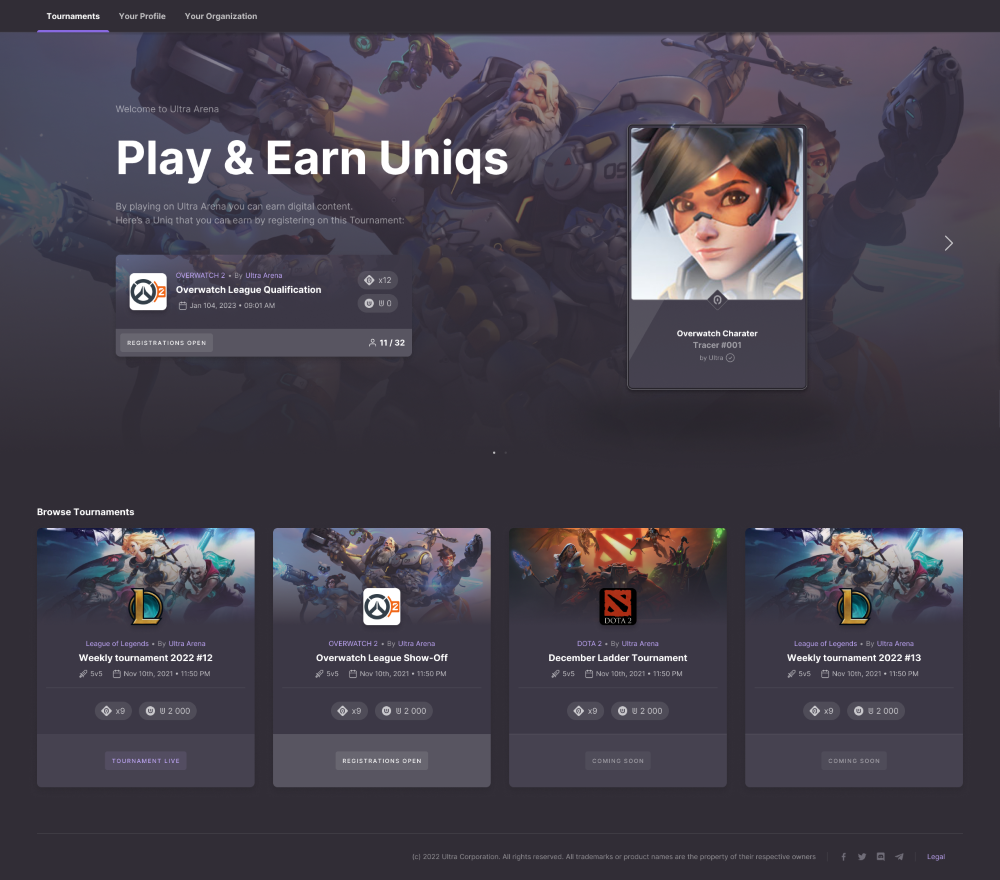TL;DR:
- Ultra Games, a Web3 gaming startup, is launching its new Ultra Games marketplace later this month. The store will have about 60-70 titles, including both Web2 and Web3 games.
- One of the unique features of Ultra Games is the ability for users to resell digital games they’ve purchased via a secondary marketplace. Game publishers can set initial no-resale periods, minimum resale price points, and royalty percentages.
- With games being tokenized, the proof-of-ownership feature could be used by publishers or partners to give out discounts, unique in-game items, and more.
- The success of Ultra Games will depend on whether game developers embrace the new model, and if players take an interest.
Ultra Games, a long-running Web3 gaming startup, is launching its new Ultra Games marketplace later this month. The store will have about 60-70 titles, including both Web2 and Web3 games. One of the unique features of Ultra Games is the ability for users to resell digital games they’ve purchased via a secondary marketplace.
🔒➡️🔓📢 pic.twitter.com/Alj5nsKr8x
— Ultra (@ultra_io) April 4, 2023
Built on top of Ultra’s own Ultra layer-1 network—a fork of the EOS blockchain, Ultra Games has been in development since 2018, and its gaming ecosystem has gradually expanded with products like the Ultra Wallet, upcoming Ultra Arena esports platform, and Uniq Marketplace for NFTs.
Interestingly, Ultra Games will let players resell purchased games via the Uniq Marketplace thanks to tokenized license rights. Game publishers can set initial no-resale periods, minimum resale price points, and royalty percentages.
“You can really tweak the entire lifecycle of your games,” said Ultra Co-CEO Nicolas Gilot, explaining that studios can leverage the secondary marketplace. Gilot believes that game developers and publishers will have further freedom to experiment with their business models compared to traditional digital game stores, like Steam, which prohibits Web3 games.
Furthermore, Ultra Games is designed to support NFT initiatives from publishers and developers. They’ll be able to launch digital collectibles called “Uniqs” that can be traded in a similar manner to the tokenized game licenses. With games being tokenized, the proof-of-ownership feature could be used by publishers or partners to give out discounts, unique in-game items, and more.
Ultra Games will be accessible to non-Web3 natives, meaning users can sign up with an email and phone number. Crypto elements (such as your wallet address) are hidden beneath a Web2-friendly interface, but that information is accessible to users if desired. Ultra Games also doesn’t charge users network gas fees for transactions.

The true measure of success for Ultra Games will depend on whether game developers embrace the new model, and if players take an interest. Gilot believes that Ultra’s game industry partners will be enticed by the unique monetization options, which include gaming giant Ubisoft, the crypto-focused Atari, and Web3 metaverse game The Sandbox.
Digital collectibles and assets are already firmly established in popular Web2 games like Counter-Strike: Global Offensive (CS:GO), which has seen individual item sales for over $100,000 each. However, such assets are typically confined to a particular game or platform, while user-owned NFT assets open up the possibility of cross-game interoperability. “Technology-wise, [a cross-game collectible] is totally feasible,” Gilot said, but he admitted that it’s “going to be extremely tricky” to navigate cross-game compatibility between multiple game makers.

Thanks for reading Solanews , remember to follow our social media channels for more

